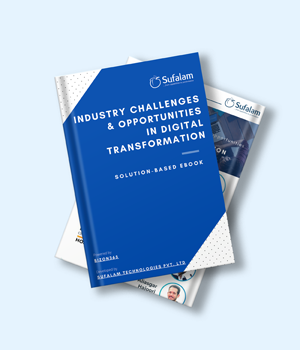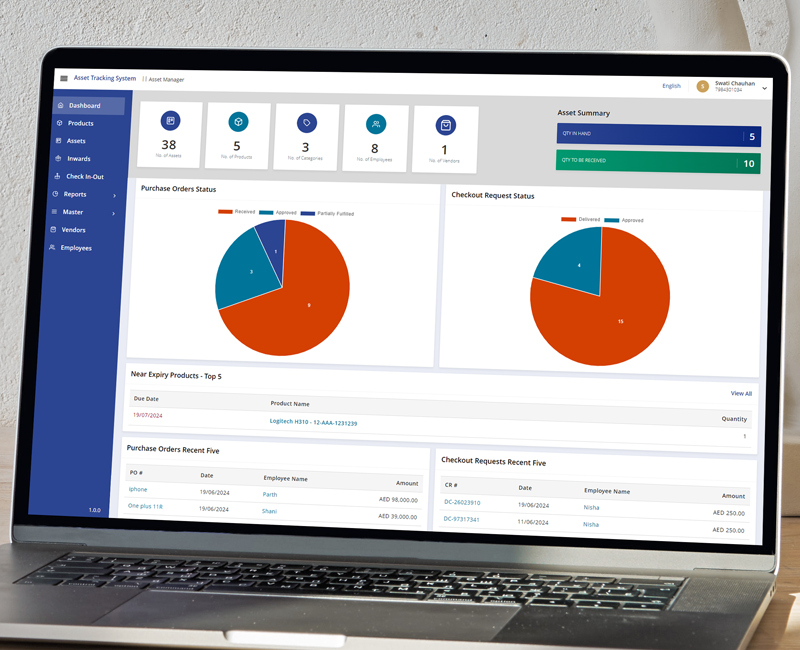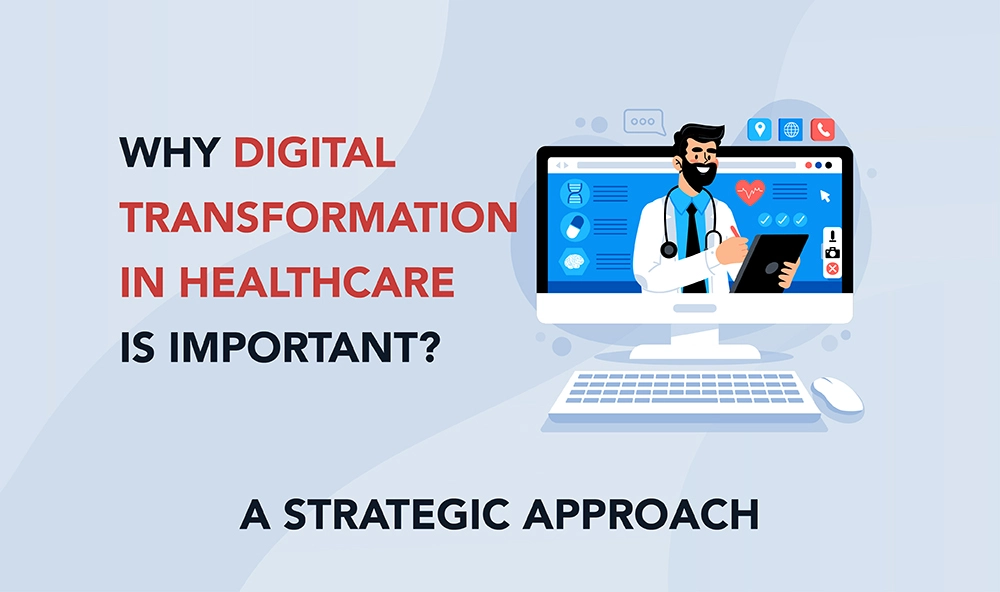
The only way to thrive in the market and remain relevant is to embrace technology. Look, to adjust to the digital age, one must adopt a more adaptable and risk-taking mentality.
The healthcare sector is not an exception to how digital transformation has affected consumer convenience and satisfaction. The healthcare sector is experiencing significant advancement and innovation thanks to the digital revolution.
Healthcare organizations may greatly improve staff satisfaction, improve patient care, and enable better and quicker diagnosis by implementing cutting-edge tech solutions.
In fact, 80.8% of respondents, as reported in the State of Digital Transformation survey, are prepared to increase technology investment in the healthcare sector.
With a focused and individualized strategy, the major benefits of digital transformation in healthcare can be transformed.
Check out more about the benefits of Digital Transformation in the Healthcare industry.
To fully realize the benefits of a digital transformation in healthcare, this sector must overcome several specific difficulties.
The term “digital transformation” refers to how an organization leverages technology and digital solutions to enhance patient outcomes, improve productivity, and increase accessibility and affordability of on-demand patient care in the healthcare sector.
Statista reports that more than $1.3 trillion US dollars have already been spent globally on digital transformation. Additionally, the same is expanding at a staggering 10.4% yearly rate.
Utilizing cutting-edge technology, techniques, and processes, digital transformation in healthcare aims to provide patients, healthcare providers, and healthcare organizations with lasting value.
Optimizing the benefits of digital transformation basically involves accepting and using cutting-edge technologies and creative ways.
Digital innovation in healthcare is exemplified by innovations like electronic health records, online scheduling, telehealth, SaMD (Software as a Medical Device), and AI-powered medical equipment.
These technologies completely alter how patients interact with medical professionals, how their information is shared among suppliers, and how decisions regarding their treatment regimens are made.
Why digitalization is important in the healthcare industry?
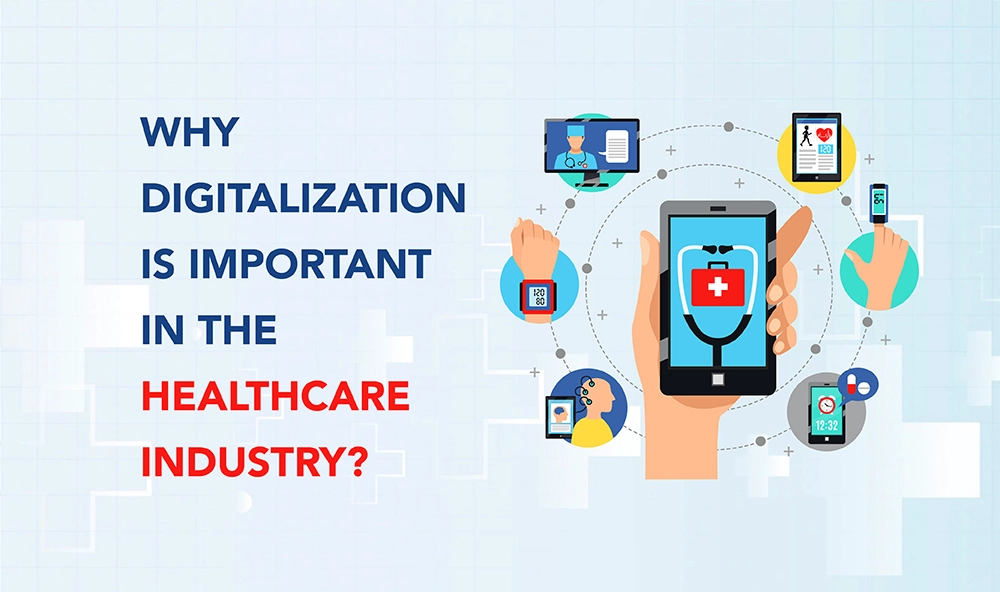
Helps in accurate diagnosis
By the better controlling flow of information, technology has the potential to give doctors the capacity to accelerate and improve their diagnostic performance.
The huge volumes of data presently being gathered in electronic health records will be filtered, sorted, and organized with the use of increasingly potent computational technologies to make the most critical health issue for a patient evident. This will eventually aid doctors in making a precise diagnosis.
Through the use of these technologies, medical professionals, facilities, and healthcare organizations may be able to more precisely measure diagnostic errors and, perhaps ultimately, lessen the likelihood that they will occur again.
To get a higher ROI
The expense of managing healthcare infrastructure and systems is among the key issues driving the need for digitalization in the healthcare sector.
The increase in global health spending between 2020 and 2024 is predicted to reach 3.9% per year. However, spending more money does not always result in greater results.
Roughly 25% of all healthcare spending in the US is wasted. Healthcare leaders now place a high premium on cutting waste and increasing operational effectiveness, and to do this, they want data-driven analytics.
The digital transformation in the healthcare industry must undergo in order to maximize resource usage and investment gains. The destiny of healthcare systems relies on digital change, and this is not an understatement.
To reduce paperwork
Paper records are cumbersome and are currently out of date. The ideal solution to get rid of such paper records and organize records and processes is to maintain digital records. It also gets rid of human errors. Additionally, electronic medical records are beneficial to patients in many ways, particularly for emergency care professionals.
When a patient shows in with a lost document or in an emergency, the electronic records assist in quickly retrieving the necessary information. As a result, it aids in providing patients with prompt and effective care.
To reduce the staff shortage
According to the Global Health Organization, low-income nations will be severely affected by the global shortage of competent healthcare professionals by 2035, which is estimated to be 12.9 million.
To enhance health outcomes in these areas, digital health has the potential to be a potent enabler. This is particularly true in rural or isolated areas of developing nations, where people are just half as likely to have access to healthcare as their counterparts in urban areas.
By linking patients directly with doctors in distant medical facilities, the appropriate software plays a crucial role in creating a useful link to the healthcare system without adding undue stress.
Utilizing mobile app development to concentrate expertise also helps patients save money by preventing pointless referrals. Simple solutions are also useful when adopting digital solutions, thus expensive equipment is not necessary.
Increased convenience for patients
Convenient appointment scheduling is promoted by the digital transformation in the healthcare industry. Patients can plan medical appointments at the most convenient time, and real-time health tracking is also made possible by the digital transformation in healthcare. Patients can monitor key health variables in real time by using modern technologies like health wearables.
Customers can also easily opt for online medicine app delivery within just a few clicks and will get the medicine which enhances customer satisfaction drastically.
Digital transformation trends in the healthcare industry.
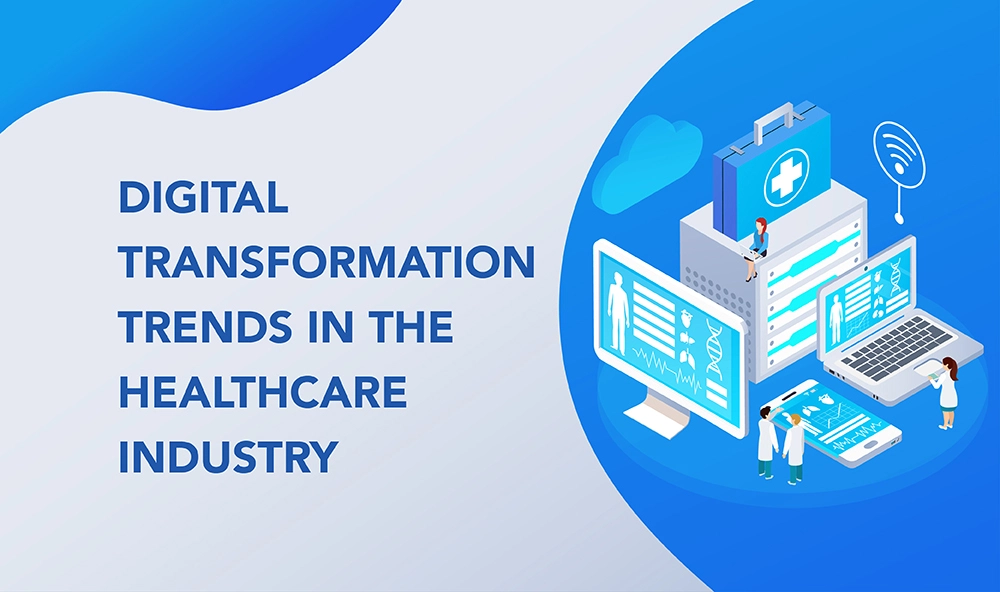
Artificial intelligence
AI screening using artificial intelligence technology is an emerging digital transformation trend in the healthcare industry. In essence, AI screening aids hospital staff in identifying which patients require attention first and directs them to the proper resources.
In order to lighten the workload on medical employees, many hospitals around the world have used AI-based chatbots and speech systems for patient screening.
AI screening may even assist in directing patients to the appointment scheduling line, which would lessen the need for them to wait in the waiting area and ease part of the workload on the medical personnel.
It would be possible to redirect callers’ calls to the proper party using an AI-based automated caller system, which would directly cut down on hold and transfer periods.
Predictive analysis
We briefly discussed how big data could offer healthcare organizations predictive information regarding admission rates and assist them in adequately staffing their facilities earlier. Predicting which ailments and diseases may become massive issues in the coming years is another aspect of the digital transformation of healthcare.
Healthcare organizations can offer suggestions for healthy lifestyles for their patients with the aid of information gathered through Big Data and other marketing sources.
The analyst might then create a prediction model that predicts where and when the next significant health issue will emerge as well as how your business can get ready for it.
Blockchain
The industry for healthcare-related blockchain systems will exceed $890 million by 2023, as per Accuracy and Strategy Intelligence.
Blockchain, a decentralized network of computers that facilitates digital transactions and is well-known for its use in the financial sector, may be able to address the problems with data accessibility preventing the digitalization of healthcare.
Blockchain technology could be a useful tool in healthcare to:
- Determine any errors or repetitions in the patient data.
- Stop security breaches that expose personal data.
- Publish patients’ medical files on a distributed ledger so they can access and share them.
- enabling access to and collection of datasets suitable for AI/ML
- One active project to apply blockchain as a remedy for disjointed medical records is Medicalchain.
Companies gathering their health information from medical devices, particularly wearable technology, is yet another tendency of digitalization in healthcare.
Wearables technology
The market for wearable medical devices is anticipated to exceed $27 million by 2023, based on a recent estimate. Patients are putting more emphasis on prevention and upkeep in the digital world and asking for health information more regularly.
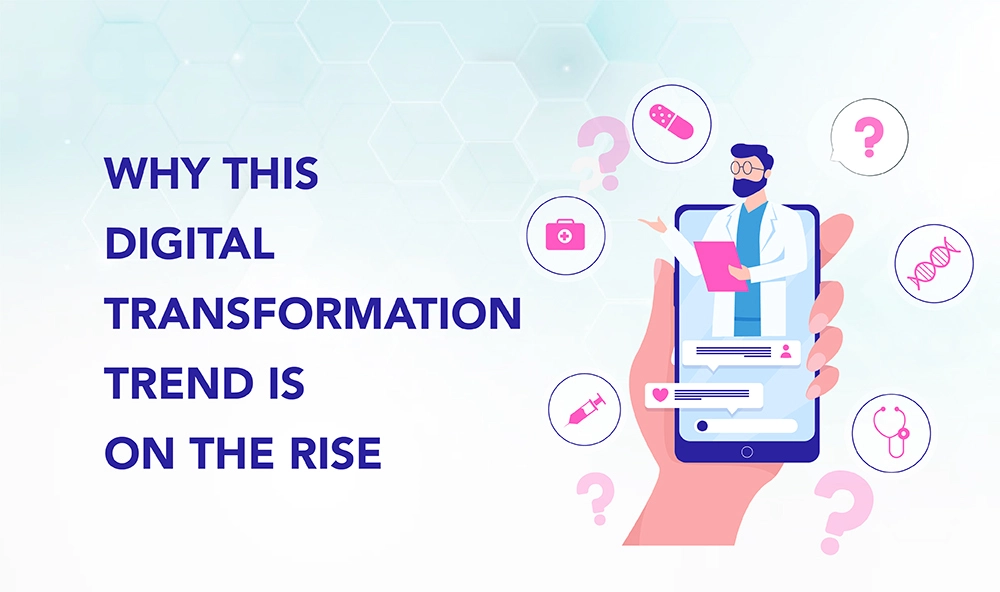
Why this digital transformation trend is on the rise?
- It makes the medical experience more individualized.
- Wearable gadget data can help insurers determine a patient’s risk for sickness more precisely.
- Patients who improve their health through preventive actions can get lower insurance premiums.
- Users using wearable technology can set competing goals to accomplish various aims.
- Additionally, wearable technology can assist healthcare organizations in making financial savings.
Hospital 4.0
Hospital 4.0, a digitalized facility, is characterized by four key components:
- Real-time interaction between clinical offices, medical regulating, procurement, and logistics, in addition to the finance and human resources departments, regarding administrative and clinical information. This communication is uninterrupted by the media, error-free, and requires no additional inconveniences.
- Intelligent process organization is based on the “End-to-End” principle, meaning without the need for human trigger actions to start the process.
- IoT, Internet of Services, specialized knowledge, and “Wisdom of Crowds”-based digital networking.
- A focus on “value systems and patient-centeredness in the provision of healthcare app development,” according to the managerial approach.
Hospital Management 4.0 is achieved when the four components that are necessary and good for patient care have been thoroughly developed. Hospital Management 4.0 integrates all of these sections so that they are focused on the processes, including “procurement planning, personnel planning, OT management, imaging monitoring,” etc.
As a result, each process has elements that involve action, execution, information, and decision-making.
Challenges in the healthcare sector to Adopt digital Transformation
Digital transformation is a difficult process, particularly in a conventional industry like healthcare. However, all healthcare institutions and companies must undergo digital transformation to compete more effectively.
While there is no doubt that the digital innovation of healthcare and technology advancements related to digitalization has altered how we manage, communicate, use resources, and work together to create effective systems, there are still certain challenges to be resolved.
The biggest obstacles that healthcare organizations typically face when adopting digital transformation are described below.
- We must fill the information void in the digital age.
- Older folks should use digital healthcare technologies on par with younger adults.
- The an urgent need to modernize outdated systems to accommodate emerging digital technology and procedures.
- To guarantee comprehensive safety and regulatory adherence, data protection is a problem that needs to be solved.
- The expense of digital transformation in the healthcare industry is still high.
- Healthcare data access is exceedingly challenging.
- Healthcare data vary between providers and facilities.
- Concerns about patient data privacy
- Financial limitations for growth
- The legislation that would resolve company worries
- Liability and patient autonomy are not yet in place.
- Readiness of the organization
Bottom Line
The rate of digital transformation in the healthcare industry is accelerating. Better patient care and outcomes have resulted from various improved healthcare services that have been sparked by it.
Global healthcare organizations are utilizing digital technologies as strategic assets. A few of the more ambitious ones are engaging in sophisticated systems transformations to bridge the gap between legacy and modern IT. They are doing their trials in order to maximize data and accelerate R&D.
We may reasonably believe that the patient would receive the greatest care at a lower cost given the speed at which the healthcare business is undergoing digital transformation.
And if you are looking forward to implementing digital transformation in your healthcare organization and getting the best healthcare app development solutions? Then, get in touch with the expert team from Sufalam technologies. We carefully understand your requirements and offer you the best services possible.

